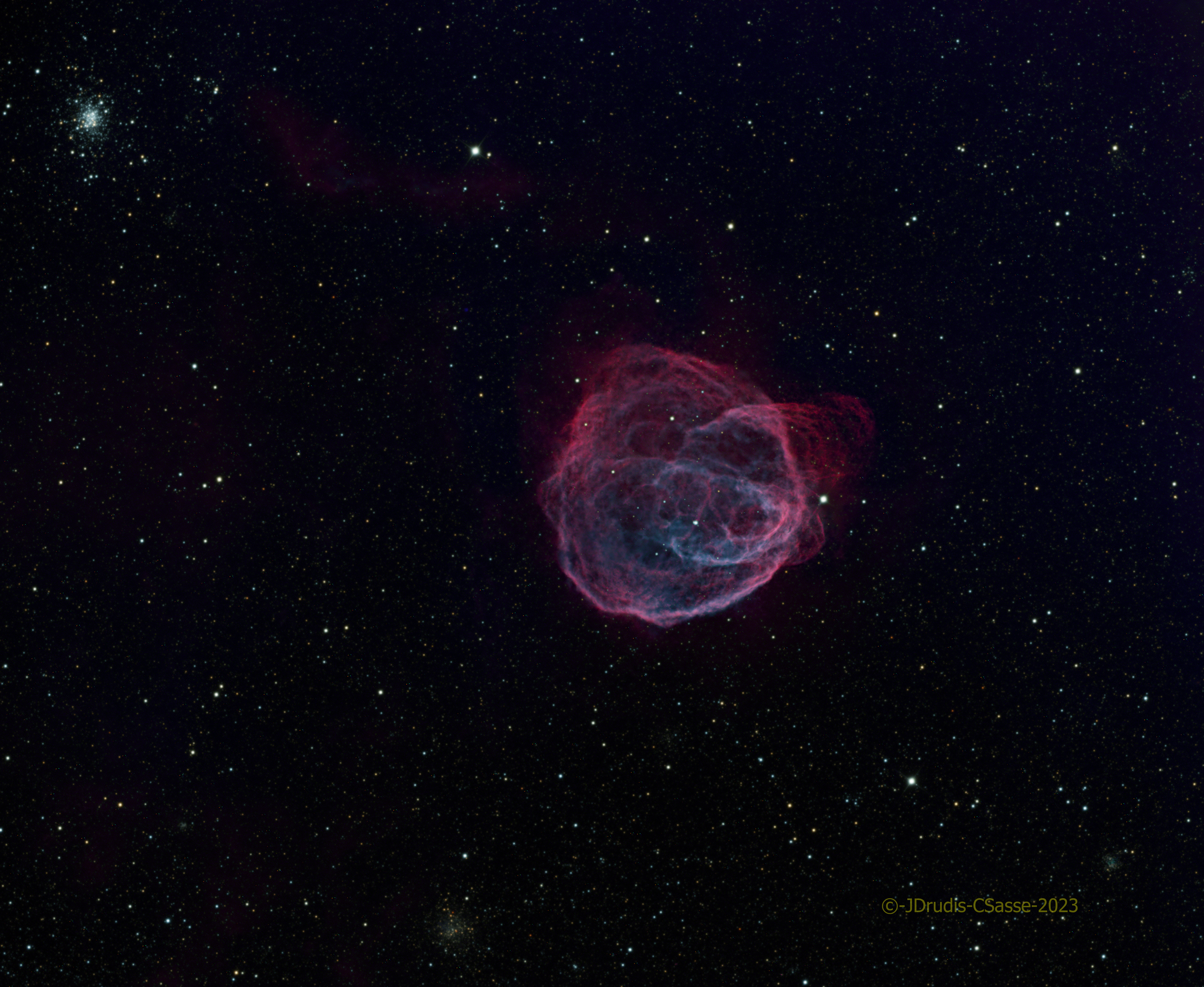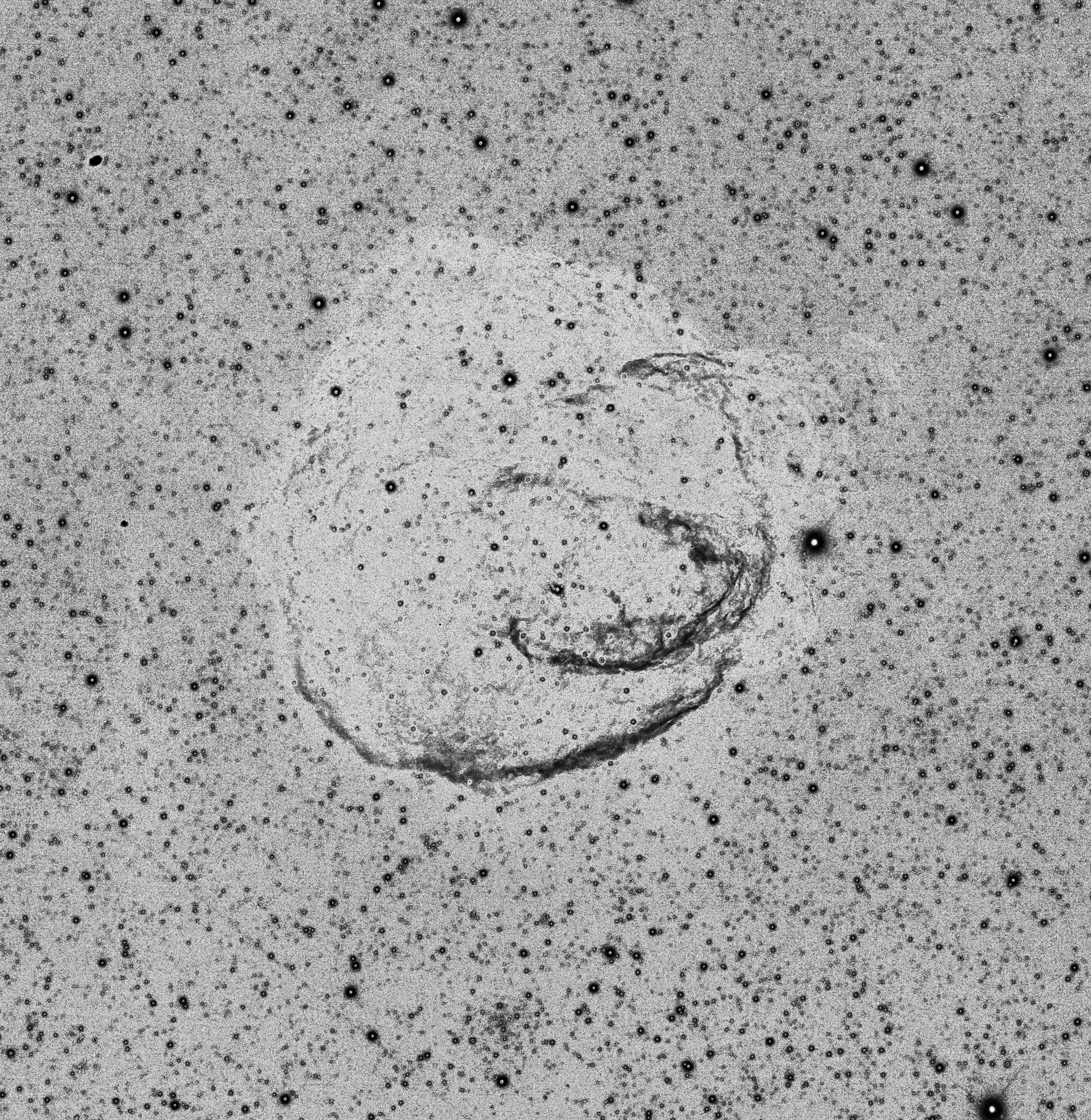Click on the image for a full resolution version
 See this image also on Instagram
See this image also on Instagram
N185 is a quite unusual SNR. Located 170,000 light years away, in the Large Magellanic Cloud (LMC, a satellite to our Milky Way), N185 is a seldom subject of study in the scientific literature. In the past, N185 was considered a superbubble, and compared to N70, also located in the LMC. In a paper published in 2014, Zhang et al. compare both nebulae. Studying mainly the chemical abundances and the X-ray luminosities, they conclude that N70 is indeed a superbubble but, as its X-ray luminosity is higher than expected, they conclude that a supernova explosion heated it enough to justify this difference. The case of N185 is different. It shows, like N70, a bright SII luminosity, especially on its outer shell (see image below showing the negative image of the difference between the SII and Halpha emissions). But the X-ray luminosity of N185 is about ten times lower than we could expect from a superbubble. In this case, the conclusion is that the outer shell of N185 (rich in SII) is not a superbubble but the result of a supernova explosion, whose bubble-like remnant has been later heated by a second supernova that might be responsible for the heated gas and the structures shown on the right side of the nebula. The existing 14 massive O and B stars inside N185 are not energetic enough to justify the current temperature. It can only be justified by the explosion of a 40-60 solar masses supernova.
Additional Information
Object
Name(s): LHA 120-N185
Type: Supernova Remnant
RA: 04h 53m 59s
Dec: -70º 00’ 53”
Constellation: Doradus
Size (arcmin): 6.5×7.2 arcmin
Magnitude: ND
Distance: 170,000 ly
Image
Date: 2023-01-13 to 2023-01-24
Location: Obstech, Río Hurtado, Chile
Size (arcmin): 29×24 arcmin
Telescope: 24” f/6.5 Reflector
Camera: QHY 461 (11760x8896pix)
Guiding: off-axis guider
Total exposure: 31h 40m (Ha: 10h 40m; OIII: 9h 20m; SII: 8h 40m; RGB: 3h)
Processing: CCDStack, PixInsight (one process) and Photoshop CC 2023

